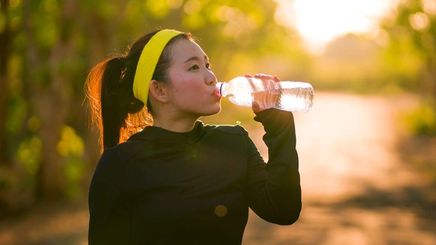
“Stay hydrated” memes and reels are cool, but do you practice what you preach? Being a hydrated queen is more than just about chugging water just to meet your daily quota. It takes discipline and planning, too. Here are the tell-tale signs of dehydration and what you can do if you start experiencing them.
What Is Dehydration?
Dehydration is the lack of water in the body. It occurs when you lose more fluid than you take in. Sweating heavily during exercise, frequent urination, drinking too much alcohol, and heatstroke are some of the most common triggers. You’re likely to get dehydrated if you don’t replenish your body with fluids under these conditions.
Signs of Dehydration
If left untreated, dehydration can lead to health problems such as urinary tract infections and kidney stones. In extreme cases, it can cause seizures and even brain damage. Fortunately, mild to moderate dehydration can be reversed by simply drinking more fluids.
The Journal of Strength and Conditioning Research states that it only takes 45 minutes to relieve mild symptoms. On the other hand, severe dehydration is a medical condition that requires up to 24 hours of recovery and intravenous fluids. Don’t ignore these signs.
- Feeling thirsty. Thirst is a sign that you are already dehydrated. As you get older, it takes longer for you to feel thirsty, which is why drinking water throughout the day is essential, especially for .
- Dark, pungent pee. Dark yellow or brownish, smelly urine is a sign of dehydration. The ideal color of pee is clear to pale yellow.
- Feeling tired or lightheaded. If you feel dizzy when you stand up from sitting, it’s time to rehydrate your body with fluids. Take small sips of water more frequently and eat water-rich foods like tomatoes, watermelon, apples, and celery.
- Dry mouth, lips, and eyes. Lack of hydration manifests itself in all areas of the body. It can reduce saliva production and make your mouth feel dry. Your eyes may also feel dry and rough.
- Fatigue, lack of focus, confusion. A 2018 meta-analysis in the journal Medicine & Science in Sports & Exercise notes that fluid loss corresponding to a 2% reduction in body mass can lead to impaired attention, focus, memory, and motor coordination.
The UK National Health Service (NHS) recommends a few hacks to help you rehydrate. These include sipping water with meals, making (non-alcoholic and non-diuretic) drinks a treat, and consuming food with high water content.
Dehydrated Skin
Lack of water in the skin can lead to dehydration. While this can also occur when the body itself is short on fluids, many other factors can contribute. Excessive sun exposure, hot showers, dry air, lack of sleep, and harsh ingredients can lead to . According to the American Academy of Dermatology signs include dryness, fine lines, and itching.
Slowly replenish lost moisture in your skin by taking shorter baths and using lukewarm water. Eat a balanced diet and drink lots of fluids to stabilize your body’s hydration levels, too. Finally, use Dove Deeply Nourishing Body Wash, which deeply moisturizes skin up to 20 layers deep. This cleans the skin while retaining its natural moisture, like lotion.
Take note of these signs of dehydration, but don’t wait until you start feeling them. Consume fluids throughout the day, especially if you sweat a lot. See your doctor if symptoms persist despite replenishing with water.